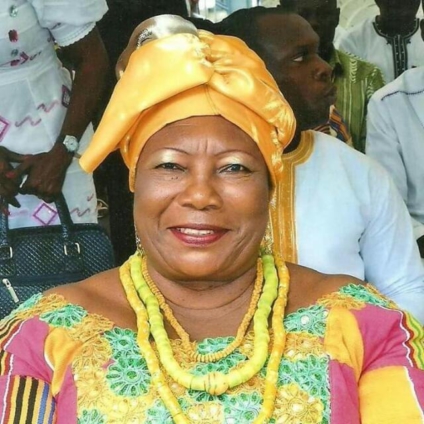The President of the Greater Accra Markets Association, Madam Mercy Needjan on behalf of the group says funds earmarked as Covid-19 relief for its members have been very difficult to access.
She explained that as a result of the cumbersome application process, many members of the association have been unable to benefit from the intervention.
The funds were disbursed by the National Board for Small Scale Industries (NBSSI) as part of the government's effort to ease the financial struggle existing in small scale industries in a time of Covid-19.
“We were expected to fill and submit forms online to access the funds. As you can imagine many of our members who are not literate were unable to fill and submit the forms on time, even when they found other people to help them”.
Mrs Needjan in her submission called on the NBSSI to release the rest of the loans to traders who have applied but are yet to receive their pay-out.
Madam Needjan was speaking at a webinar organized by the Centre for Social Justice under the theme Celebrating Women in Leadership in a Pandemic.
Other speakers at the webinar included Deputy Chairperson of the National Commission for Civic Education, Kathleen Addy, Obstetrician and Gynaecologist, Dr. Hawa Malechi, President of the Greater Accra Markets Association, Mercy Needjan, lawyer and politician, Joyce Bawah Mogtari and CSJ Council member and Fellow for Gender and Social Inclusion, Bashiratu Kamal Muslim.
Madam Needjan said that the leadership of her association had gone to great lengths to educate its members on social distancing and other safety protocols.
She identified overcrowding in the markets as one of the greatest challenges in fighting the pandemic.
Speaking at the webinar was lawyer and politician, Joyce Bawah Mogtari. In her presentation, she stressed that women account for about 70% of the health and social workforce, which puts them at higher risk than men and yet they are less represented at the decision-making table.
She enumerated various ways in which women have borne the greater part of the effects of the pandemic. She however noted that women in leadership have proven to be better at handling the pandemic.
“They have a higher responsibility because they are more concerned with the health situation at home and must also carry their organizations along” she said.
Latest Stories
-
Inter edge out Bayern to reach Champions League semis
42 minutes -
Superb Arsenal defeat Real Madrid to reach semi-finals
46 minutes -
GPL 2024/25: Young Apostles’ late goals seal win over Berekum Chelsea
52 minutes -
FIFA Club World Cup arrives in Casablanca for final African stop
55 minutes -
Level 100 student allegedly commits suicide after partner cheats on him
3 hours -
Tariffs will hit US economy and raise prices, says Fed boss
3 hours -
Muster courage and go by dictates of report – Dr Asah-Asante to NPP
5 hours -
Minority urges Mahama to act on Bawku security situation
5 hours -
Olive Tower Prayer Ministries, Unilever Ghana hold free health screening for 700 Pokuase M.A. Basic School students
5 hours -
Obama calls Trump’s freeze of Harvard funding ‘unlawful’
6 hours -
Albert Kobina Mensah: Observed or discovered?
6 hours -
US tariffs will make global trade shrink, says WTO
6 hours -
UK bans EU cheese and meat imports to prevent disease spreading
6 hours -
NPP to begin nationwide Thank You Tour after 2024 election defeat
6 hours -
GPL 24/25: Aduana Stars defeat spiritless Hearts of Oak
6 hours

